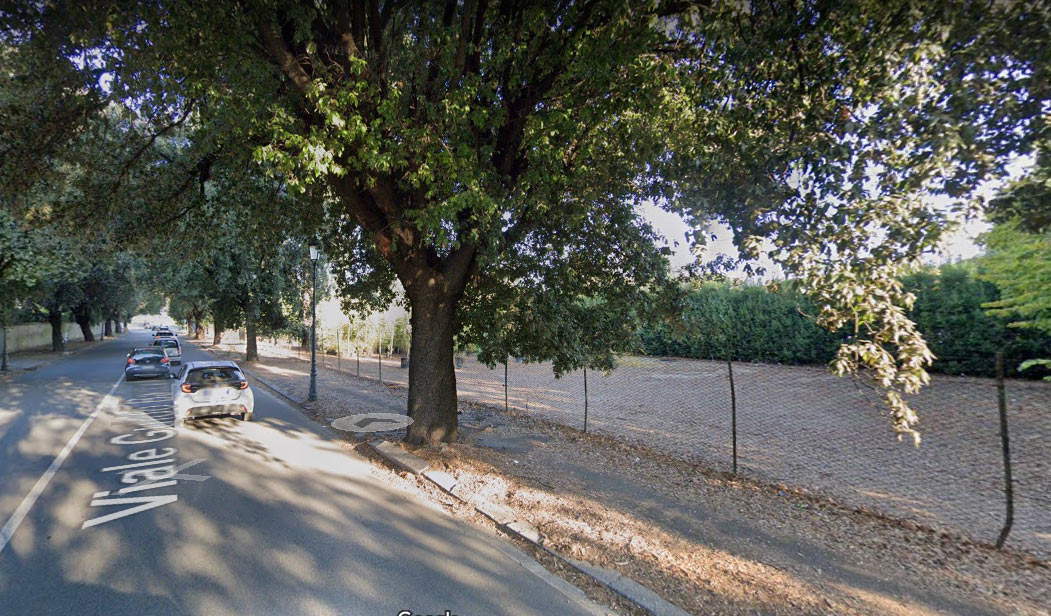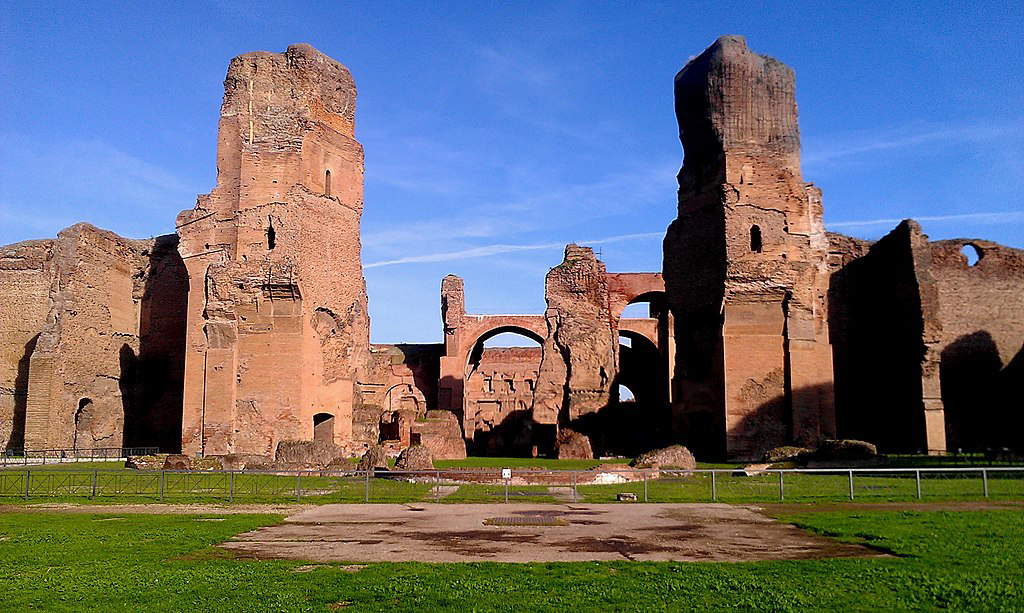The denial of a permit to open a drive-in instead of a nursery just a few steps from the Baths of Caracalla, in a normal country, should not be news. It is obvious that a fast-food restaurant with a parking lot cannot open in an area of very high landscape and historical value, it is in Italy as it is in many other countries in the world with less solid heritage and landscape protection laws than ours. In fact, under Italian laws, it is not legal.
The final halt to McDonald’s plans to open at Eurogarden, a private land overlooking the Baths of Caracalla, comes as a due formality. The disenchanted observer cannot but marvel that an international company that can equip itself with the best lawyers and planners has decided to invest for years on a project with almost zero chance of success. But given that in these same years, and even after the final ruling of the Council of State, a great deal of inaccurate or false information has been circulated, almost as if it were an ad hoc measure for McDonald’s (and one has to wonder why, and by whom, this information was circulated) here it is good in a few lines to put in order what happened.
The first important fact to point out is that the McDonald’s project, unlike what has been written elsewhere, never obtained a permit from the Superintendence that was later withdrawn, and it did not stand in an area free of constraints. The second piece of information was perhaps a (desperate) wish of McDonald’s lawyers, but as the local Soprintendenza made clear from the outset (at a services conference convened by the City of Rome on the project), that area, included in the regional Landscape and Territorial Plan, required a landscape permit: it could not have been otherwise, given the area rich in historical and architectural remnants.

The news about the authorization obtained from the Superintendence is true, but not in the terms disseminated: McDonald’s, as per practice, first obtains the clearance on the archaeological plan, that is, the possibility of proceeding without excavation, since the Superintendence was informed that the area was devoid of significant archaeological remains. The project then passes a first step fairly quickly. At that point it has to get the other authorization, the landscape one, however, an incredible fact happens: in an official act the Lazio Region, denies, against the written evidence, that the area was included in the Landscape Plan. Only then, somehow to quickly clear away doubts and get the local offices out of an embarrassing situation, the General Directorate of Archaeology Fine Arts and Landscape extends the direct constraint of the Baths of Caracalla also to the area affected by the new project, so that no one in the Region could think of making a political move (that’s what it would be about) in favor of the new McDonald’s.
The media chaos follows a series of reckless statements by politicians (the president of the II Municipality or the Region, from the PD, the mayor and the minister, both from the M5S: all combined with the silence of the Superintendence officials, due to ministerial regulations) who say they are for or against the project as if it had been approved: they do so either because of little knowledge of the regulations, or because they knew about the Region’s possible next move in favor of the company. In any case, in those days of 2019 a number of articles talk about the project as having a concrete possibility of being implemented: it never was. The project does not get a landscape permit, lawyers make a series of appeals all the way to the Council of State, using a defense line with laughable grounds: i.e., they argue that a simplified procedure, the one used when a building or space is repurposed with minor modifications (which does not require a landscape permit), should have sufficed, but, as argued by the Superintendency and courts in sequence, turning a nursery into a drive-in with parking is clearly a transformation, not a restoration with minor modifications.

The myth, spread by a section of the press and politicians, of the poor entrepreneur harassed by incomprehensible laws and bureaucratic crossovers, and the idea that a multinational corporation can tackle a similar project but the small Roman restaurateur does not even try, is therefore, at least in this case, entirely inappropriate. No entrepreneur with an ounce of planning would think that he or she could turn such a place upside down without going through a landscape permit, and we will never know whether McDonald’s acted out of a conviction that it was “too big to be stopped,” out of a profound misunderstanding of the regulations, or out of a desire for publicity: the fact is that the law was there, and it was known to those in the industry. This does not mean that there is not a problem with bureaucracy in this country, let’s be clear, nor does it mean that the laws guarantee us from the ugliness and havoc that characterizes historic centers and suburbs. But it does mean that the request, in the case at hand, was so blatantly forced that the only way to get the project accepted was for McDonald’s to act in derogation of the law, with an ad hoc measure: something that, fortunately, cannot be done.
I say “fortunately” because I think it is clear to anyone that it would be the Baths of Caracalla that would enhance McDonald’s, and not the other way around: a drive-in there, in a spot nestled between the baths and the Aurelian walls, close to the Appian Way and the next Metro C stop, easily accessible from the southern part of Rome via Via Cristoforo Colombo but still attractive to tourists and right in the middle of the historic center, would be the dream of any fast-food manager. The company has for some time now in Italy focused on opening outlets in historically or strategically exceptional areas, such as squares and train stations. In other countries of Europe it is not so normal to find outlets of multinational fast-food companies in famous squares and historic centers. This is because of a kind of homegrown foreignness that ends up throwing open doors that in many other places remain closed.
One problem remains now: the fact that the Eurogarden area, a rich nursery until a few years ago, is left to its own devices. This is a problem, however, that is not addressed by opening a drive-in with parking, but by forcing the owners to maintain it, or give it to the municipality if they are unable to do so. Opening a drive-in in that area, which, moreover, is unfortunately characterized (being a transit area), like other areas of Rome, by unglamorous frequentations, it is not really clear how it could have chased away the degradation and not increased it. But here we enter the realm of opinion, while the fact that this project should have obtained a landscape permit is not an opinion. And screaming about Italy being unfriendly to entrepreneurs or, conversely, victory against capitalism, in such a case can only create background noise.
Warning: the translation into English of the original Italian article was created using automatic tools. We undertake to review all articles, but we do not guarantee the total absence of inaccuracies in the translation due to the program. You can find the original by clicking on the ITA button. If you find any mistake,please contact us.